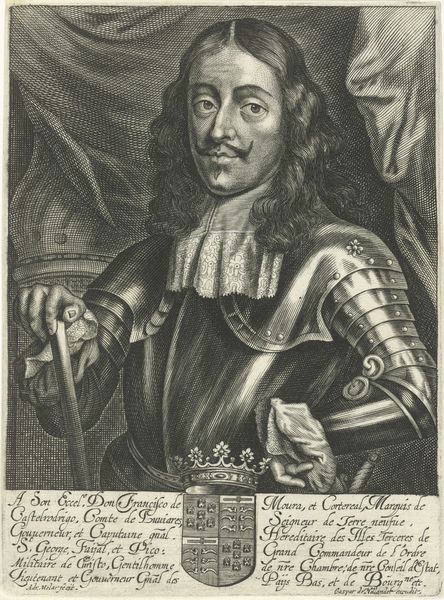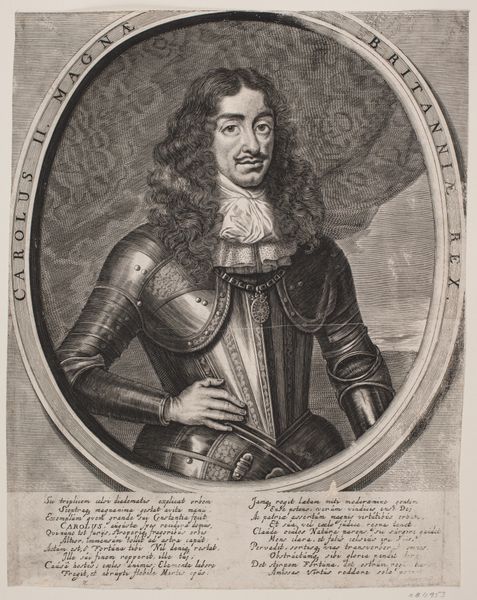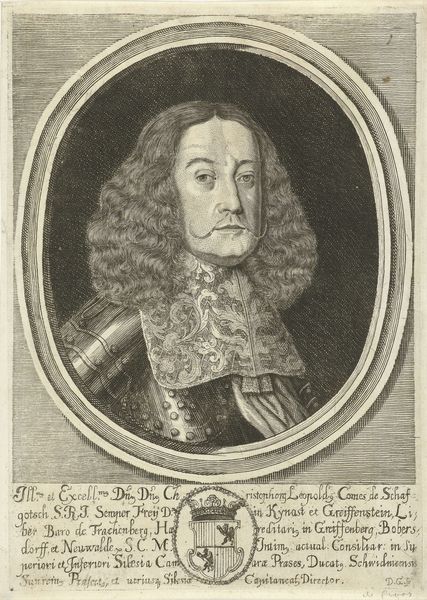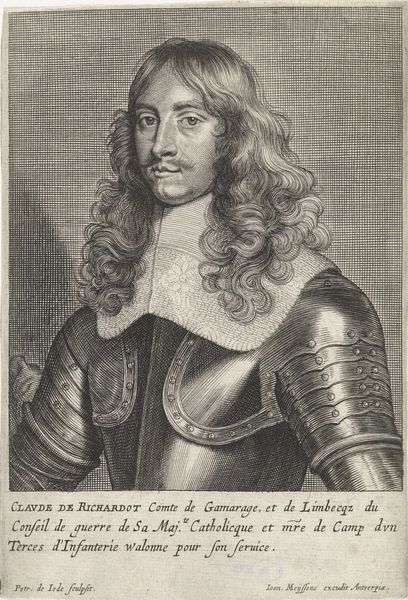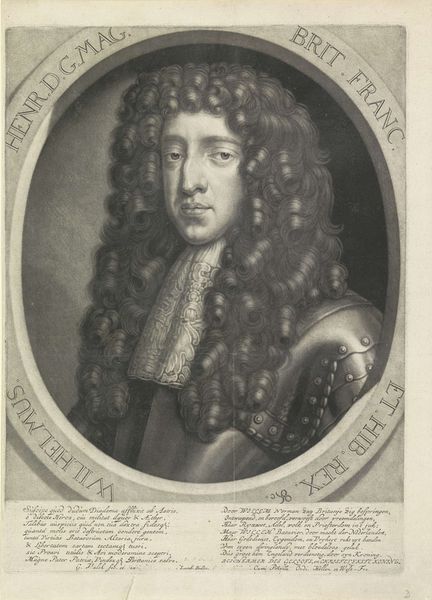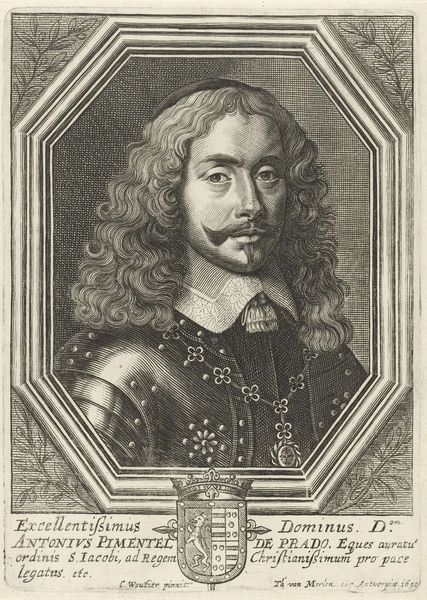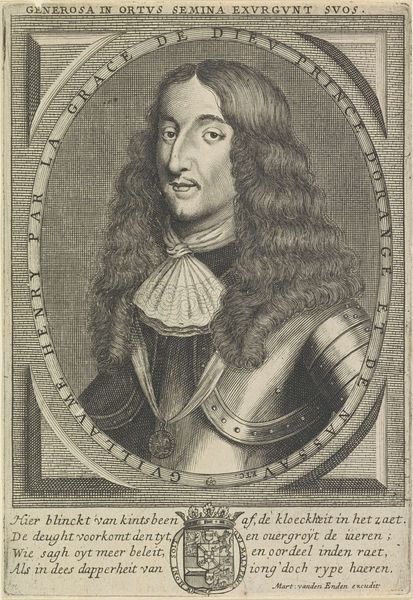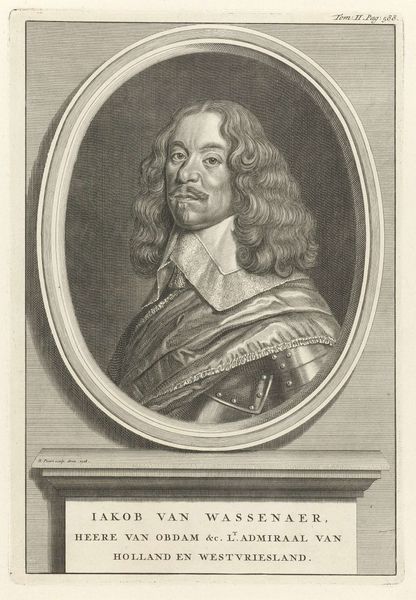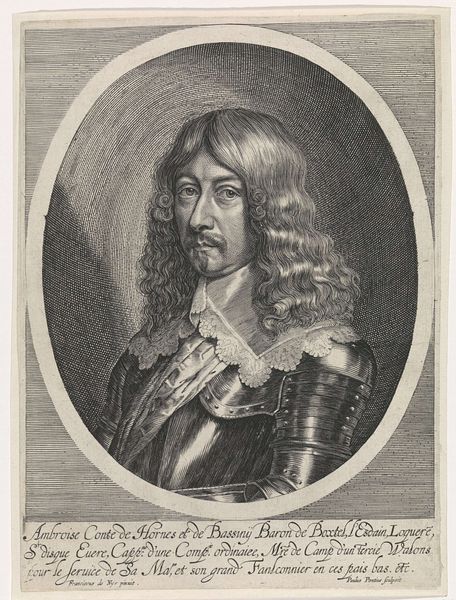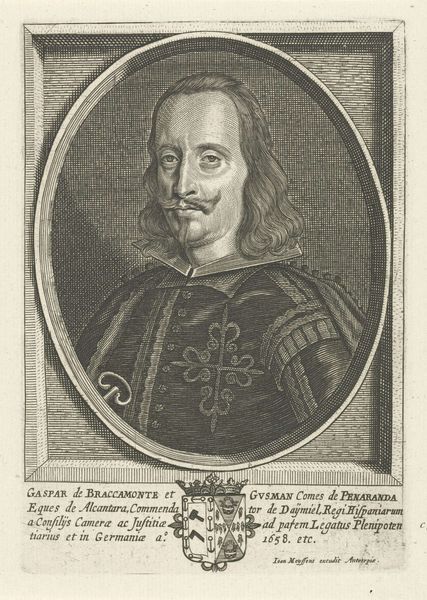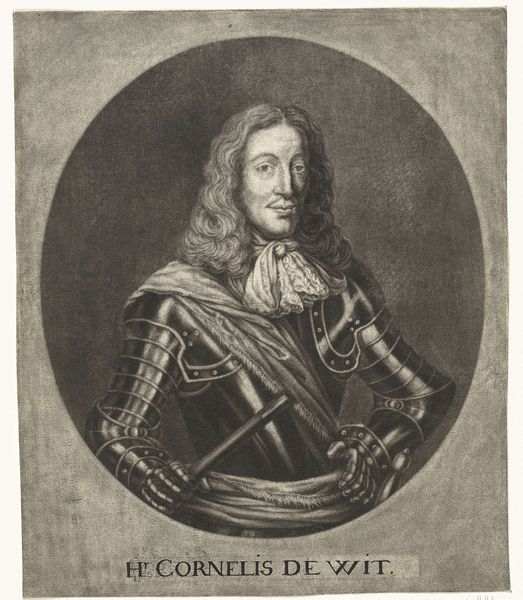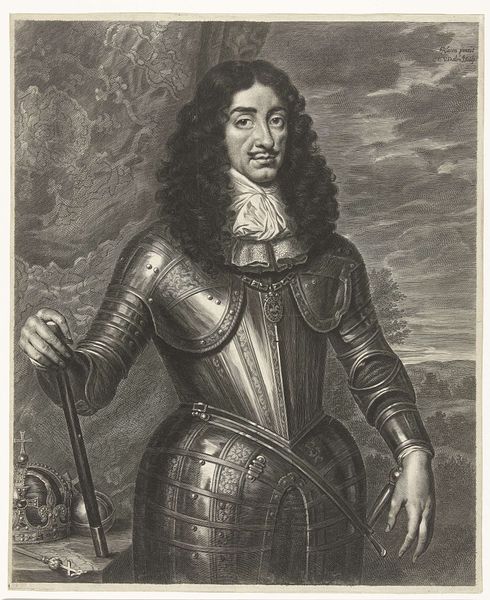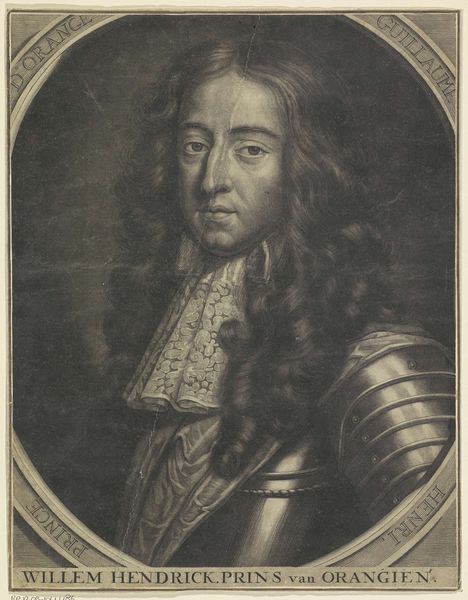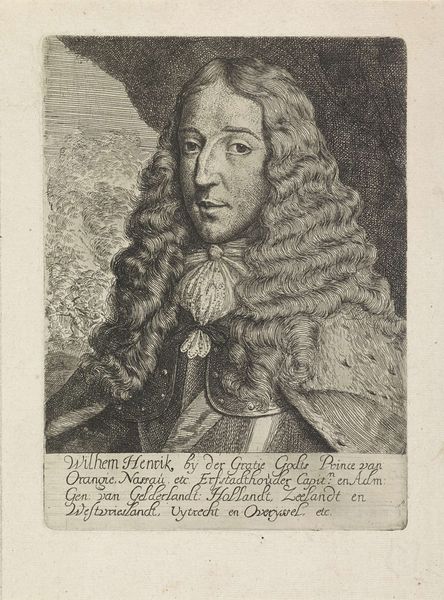
intaglio, engraving
#
portrait
#
baroque
#
dutch-golden-age
#
intaglio
#
engraving
Dimensions: height 174 mm, width 126 mm
Copyright: Rijks Museum: Open Domain
This print of Cornelis de Witt was made by Samuel van Hoogstraten, likely around the 1650s or 60s, using engraving, a process that demands meticulous skill. Notice how the crisp lines capture the sitter's likeness and the intricate details of his clothing. This wasn't a quick sketch; it required careful planning and the steady hand of the engraver to translate an image onto a copper plate. The process involved cutting lines into the metal, which were then filled with ink and printed onto paper. It's a labor-intensive process, but one that allowed for the creation of multiple copies, spreading the image far and wide. In its time, it was a mechanical reproductive media for knowledge and awareness. Engraving like this was closely tied to the world of commerce and communication. Prints like this helped to circulate images of important figures, playing a vital role in shaping public opinion. It reminds us that art is always connected to broader social and economic forces. Examining the materials, processes, and context of production allows a richer understanding of this portrait.
Comments
No comments
Be the first to comment and join the conversation on the ultimate creative platform.
